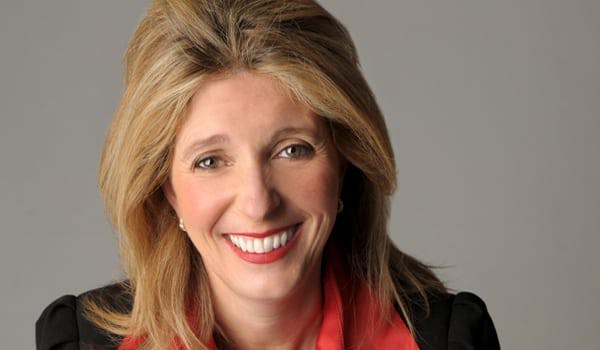Originally training as a nurse, Penny Spencer spent 16 years working her way up the travel ladder before launching her own agency, Spencer Travel, in 1998.
Spencer has since become one of the big names in the Australian travel industry, with her business now turning over $30 million a year and recently being named one of the best places to work in Australia.
Dynamic Business spoke to Spencer about the importance of office culture and celebrating success in business:
Before working in travel you trained as a nurse. What brought you to the travel industry?
I did always want to be in the travel industry, but when I left school I had done a bit of nursing and thought it would be a safer career to go with, as I didn’t know how to get into the travel industry. So I did start the process of nursing, and after a year or so I realised it wasn’t what I really wanted to do, which is when I started on the path of looking how to get into the travel industry.
It really was from a love of the travel I’d done, the experience of getting on an aircraft and being excited about when you’re going to land and what’s going to happen in a new country and new city, and that’s the thrill I got from travelling and thought, I want to experience this and have a career around it.
What led you to start your own business?
I’d been in travel for 16 odd years before that and had worked my way up from stamping brochures to receptionist to domestic consultant to an assistant to an international consultant to a manager, so I’d done every step to get to the next stage, which I felt was to own my own business.
I did have that feeling of wanting to own my own business at around 26 or 27, so I realised throughout my career I had learned a lot of things about what worked, and what didn’t, by watching the people that I worked for. I felt I really wanted to do it my way, and the best way to do it was to start my own business.
What challenges did you face in growing the business?
The main thing in overcoming challenges is staying calm and making sure you have a plan. It’s very difficult sometimes with staff because you might receive an email or they might come in and talk to you about something, or you find out they’ve done something that’s affecting your business, and immediately you want to react.
Most of the time, I sleep on it, unless it’s something that needs to be addressed that day, but in that case I might go out for a walk before I address it. The main thing is not to react, and it’s the same if you find you have a cash flow problem or the economy’s going down and the phone isn’t ringing. You need to have a plan, you can’t just react.
Your business has won a multitude of awards and was recently listed as one of the best places to work in Australia – how did you build a positive workplace culture?
I think when you start a business you don’t actually understand that you have to build a culture as well. I look back at my 15 years, and at the beginning it was just head down, bum up, I just worked and didn’t look around me too much, I just did the job. It took a while to realise I had to work not just in the business, but on the business.
I had to take myself away from day to day consulting and issues and look at who I could employ to take on some of my tasks. It’s important to have staff you can delegate to, and realise that staff want you to delegate, they want to help. It comes back to building the right culture around how you want your business to be looking forward. I built it around honesty, transparency, and teamwork, the values of helping each other and having fun and being passionate.
You start with determining how you want your culture to be, and you portray that to the staff, and start to employ people that portray those same values, and that’s when you build a culture. To retain it, you have to keep sticking to those things: I’m very honest with my staff, very open, everyone who works here is very passionate about the industry, we have fun and celebrate success. You just reinforce those things every day.
What advice would you give to female entrepreneurs?
I think the main thing is to be strong and to constantly work at your dream. It’s very hard when you’re a female at times because you have so much other stuff going on, family, children, you’ve still got to do the washing, but you’ve got to run the business as well. You have to have great support behind you and that’s really key. Always strive and make sure you can achieve what you want to achieve, but along the way you have to have support to help you achieve that.

